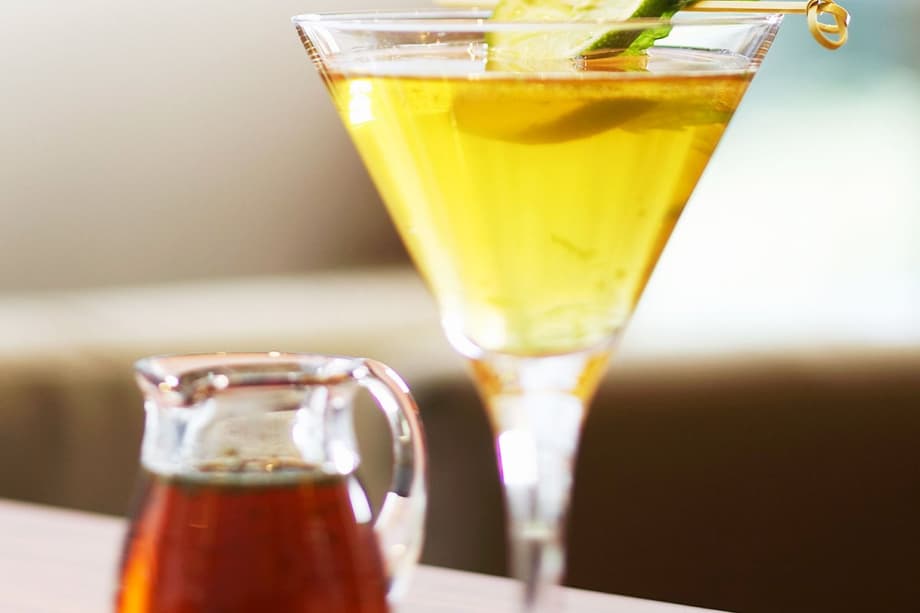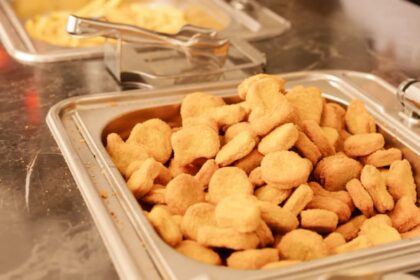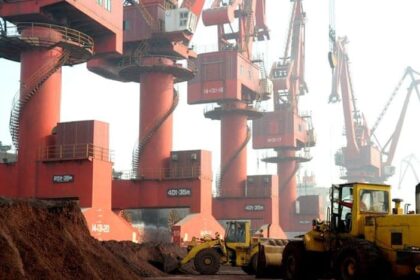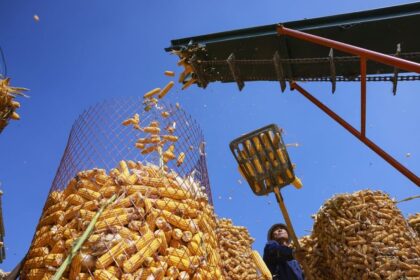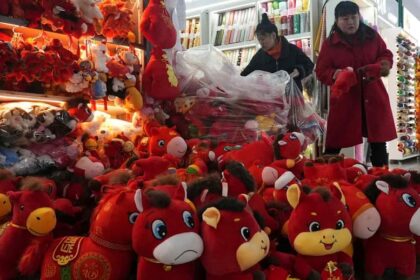Why the ban widened and who is affected
China has tightened restrictions on Thai sugar products, extending a suspension that began in late 2024 into a full ban on all syrups and premixed sugar preparations from Thailand. The latest order, effective from October 27, 2025, closes remaining customs routes and freezes new registrations for Thai producers. The move followed inspections by the General Administration of Customs of China of ten Thai factories that, it said, failed to comply with food safety and production control requirements. Thailand’s processed sugar sector is now bracing for closures and layoffs, with industry groups warning that as many as 47 companies, most of them reliant on the Chinese market, are at risk. The ban now covers all syrup, sugar blends, flavored sugar solutions, and related preparations, removing the room that exporters had used to redirect shipments under alternative customs classifications. Several consignments have been denied entry or returned, and the cost of compliance, shipping delays, and storage has escalated. Association leaders say the sector buys roughly 3.6 million tonnes of sugar annually for further processing, so a prolonged halt in its largest market could trigger a deep contraction across factories, logistics, and upstream cane farming.
- Why the ban widened and who is affected
- What prompted Chinese customs to act
- How big is the trade at stake
- Factory shutdowns and shipments turned back
- Thai government response and industry demands
- Safety rules, audits, and the dispute over standards
- Ripple effects for farmers and prices
- Trade channels and the search for other buyers
- What happens next
- What to Know
China’s action did not come out of nowhere. The import suspension first landed in December 2024 on two product codes covering liquid sugar and premixed sugar powder. Thai exporters then tried to keep sales going by booking cargoes under other categories. The latest expansion closed that path, hitting every syrup and premix line. Industry estimates point to heavy losses. Tens of thousands of tonnes of product have been returned to Thailand. Penalties at ports, storage charges, and discounted resale have pushed combined losses into the billions of baht. Factories report that raw sugar procurement has halted in many cases, since they cannot move finished goods into their main destination.
What prompted Chinese customs to act
GACC inspectors visited Thai syrup and premix facilities during July to September 2025. Their audits, coordinated with Thailand’s National Bureau of Agricultural Commodity and Food Standards, flagged shortcomings in sanitary controls. Findings included weak separation between administrative offices and clean production zones, inadequate sterilization procedures, and gaps in documented quality control. The Thai side said companies had invested heavily in upgrades, including cleanrooms and controlled production areas, yet none of the ten factories passed China’s review.
Chinese authorities also pressed Thailand to verify the status of manufacturers before further talks. Thai agencies compiled and sent lists of food safety certified plants, along with inspection details, early in the year. Industry leaders say there was no formal reply for months, and requests for additional checks later followed. While the trigger was framed as food safety, Chinese officials have also been concerned about the use of syrups and premix powders as a channel to bring white sugar into the country outside tariff and quota rules. That concern helped drive a tougher stance and a broader ban.
How big is the trade at stake
Thailand was China’s main supplier of liquid sugar last year. Official figures show China imported more than a million tonnes of liquid sugar and large volumes of premix powder in 2024, with Thailand and Vietnam the key sellers. Thai industry groups say around 1.2 million tonnes of liquid sugar went from Thailand to China that year. The trade is valuable. Data on processed sugar shipments under regional free trade rules show that in 2023 Thailand was the top supplier to China in this niche, with export values in the hundreds of millions of dollars. Under the ASEAN China Free Trade Agreement, many of these products move at zero tariff if they meet origin rules and carry a Form E certificate. The ban overrides those preferences because it is based on safety and registration status, not tariff rates.
Inside Thailand, the scale is larger than many consumers realize. Dozens of companies buy raw or refined sugar and convert it into syrups and blends for beverage, bakery, and food manufacturing clients. Industry groups say these processors purchased around 2.1 million tonnes of raw sugar during the first ten months of 2024, up from the previous year, to fill strong Chinese demand. Now that demand has snapped. Some producers have stopped buying raw sugar entirely. Others are selling returned products at a loss or trying to reroute to smaller markets that cannot absorb China-sized volumes.
Factory shutdowns and shipments turned back
The operational fallout is steep. Out of a core group of roughly forty to fifty Thai syrup and premix factories, association representatives say more than thirty have suspended production. Many of these plants built their business around Chinese buyers. Once containers were rejected and returned, cash flow dried up, credit tightened, and inventories piled up. Industry estimates suggest that about 40,000 tonnes of syrup and premixed powder have come back to Thailand since the first suspension, with hundreds of containers stranded at sea or stuck in logistics limbo at different times. Demurrage fees at Chinese ports and discounted resale have magnified losses, which companies now count in the billions of baht. Some operators report that they have not run a production line in months.
Todsaporn Ruangpattananont, president of the Thai Sugar Product Association, said many members invested heavily to meet the standards they were told to follow, but the ban kept expanding. He warned that without relief, only a handful of factories could still be operating by year end. Introducing his frustration with the stalemate, he said the situation has left companies idle.
They can’t do anything. They can’t do anything.
Returned cargo has also created a pricing shock. Goods prepared for specific Chinese customers or formulations cannot always be sold domestically or to other buyers at the same quality terms. Some operators report being forced to accept lower prices to clear inventories, further eroding margins. Storage and reprocessing raise costs that small and mid sized firms struggle to carry.
Thai government response and industry demands
Multiple agencies are engaged. The National Bureau of Agricultural Commodity and Food Standards has coordinated technical submissions to Chinese counterparts, documented factory audits, and compiled exporter lists. The Food and Drug Administration has supported inspections and licensing. The Ministry of Commerce has been asked to lead talks with Chinese customs. Industry representatives want three immediate steps. First, allow goods currently stuck at ports to clear. Second, permit export of finished products held in warehouses under temporary arrangements while audits continue. Third, name a single lead authority in Thailand that can certify factory quality and speak directly to China’s requirements.
Calls for political intervention have grown. Senator Ekkachai Ruangrat, a member of the Senate Committee on Commerce and Industry, said the ban has added serious pressure to farmers and factory workers at a time when prices are already weak. He urged the government to clarify agency roles and to engage Chinese officials quickly.
The ongoing import ban has seriously affected sugarcane farmers nationwide, as falling sugar prices are already causing hardship. A swift, coordinated response is needed to protect jobs and incomes.
Industry voices also stress that Thai plants meet global manufacturing benchmarks and are ready for scrutiny. Rangsit Hiangrat, a director at the Thai Sugar Millers Corporation, said factories are prepared to open their doors to joint reviews if that is what it takes.
Thai sugar factories have certified standards and export to the world. Many are ready for inspections.
Some lawmakers have asked for an inquiry into how export quotas and permits were allocated, citing reports of irregularities. They want assurance that trade rules are followed and that domestic supply is protected while talks with China continue. Industry groups, for their part, say the priority is to restore access or secure managed exemptions so that stranded shipments and finished goods can move before they spoil or become obsolete.
Safety rules, audits, and the dispute over standards
Food safety compliance can sound abstract, yet it comes down to clear, measurable controls. China’s inspectors look for physical separation of clean and non clean areas, validated sanitation protocols, pest control, filtered air and pressure controls in rooms where contamination risks are high, and documented hazard analysis across the production line. Labels, traceability, and batch records are also essential. Thai factories say they have invested in these areas. China’s audits found gaps, particularly in zoning and process control, and then expanded the ban to cover every syrup category to prevent reclassification.
A second factor is customs policy. In 2024, China imported record volumes of liquid sugar and premix powders. Authorities have been concerned that some of those imports functioned as a pathway to bring white sugar into the country outside quota and tariff limits. They raised the most favored nation tax rate for some syrup categories for 2025. ASEAN preferences still exist, yet the stricter regulatory filter, combined with a freeze on new plant registrations, means the practical constraint is compliance and approval rather than the tariff rate. Vietnamese producers remain under review as well, signaling that Beijing’s effort is broader than a single origin.
Thailand disputes any suggestion that it lacks a competent authority to oversee product safety. Officials point to the FDA and ACFS as established agencies with legal mandates, and they say that inspections of dozens of factories have already been completed to confirm adherence to manufacturing standards. The central challenge is aligning those domestic certifications with what Chinese customs will accept as demonstrably equivalent. That typically requires detailed audit checklists, document sharing, and sometimes joint inspections on site.
Ripple effects for farmers and prices
The ban is hitting farmers through prices and demand. Processors that convert raw sugar into syrups and blends bought millions of tonnes of raw sugar in 2024 to serve Chinese orders. Many of those orders have vanished. Mills now weigh whether to cut runs or delay purchases, which can depress cane prices paid to growers. At the same time, global sugar prices have slipped from recent highs. Larger harvests from Brazil and India have pushed white sugar prices down compared to late 2023, and that backdrop leaves Thai farmers with less cushion. Rising input costs and weather variability compound the stress on cane yields and income.
Farm communities also face stricter domestic rules on field burning and air quality. Those policies address public health and environmental goals, yet they can raise costs during harvest seasons. If factories cannot absorb cane on schedule, farmers can be left with longer waits and quality losses. These stresses arrive together, reducing cash flow across the rural economy in regions where cane is a main cash crop.
Trade channels and the search for other buyers
Finding replacement markets for syrups and premix sugar products is difficult. China’s market size, long relationships with beverage producers, and specific product formulations mean that returns are not easily replaced. Some Thai exporters have explored opportunities in Southeast Asia, including the Philippines and neighboring markets, often with help from trade committees and industry groups. Those sales tend to be smaller, and they cannot quickly absorb a million tonne class flow of liquid sugar and premix powder. In the meantime, some companies are diverting raw sugar to other destinations where quotas permit sales, yet that shift does not help plants designed to convert sugar into higher value syrups.
Warehouses carry the burden. Finished goods with a limited shelf life need movement or reprocessing. Cold storage and climate control cost money each day. Banks watch inventory levels and working capital lines closely when cargoes are rejected, which can force further production cuts. The longer the dispute lasts, the more likely that mid sized firms will have to shut lines, lay off staff, or exit the business.
What happens next
The immediate aim is to restart dialogue with Chinese customs and secure pathways for compliant factories to ship. Thai agencies have completed inspections and compiled dossiers for dozens of plants. The industry wants China to accept joint audits or document based approval for plants that meet specific benchmarks. A carve out to clear stranded cargoes would ease cash flow pressures. That step would not resolve the core issue but would prevent further damage while talks continue.
Longer term, companies may need to internalize stricter cleanroom design and zoning rules, add more robust validation of sanitation steps, and strengthen traceability and documentation to match China’s power to verify. That requires capital and time, which is difficult for firms without export revenue. Clear designation of a lead Thai authority would make dialogue easier and could reduce conflicting signals. If those pieces fall into place, Chinese authorities could review factory lists again and consider reopening registrations under tighter oversight.
What to Know
- China expanded its suspension into a full ban on all Thai syrups and premixed sugar products effective October 27, 2025, and froze new factory registrations.
- The ban followed audits of ten Thai plants that Chinese customs said failed food safety and production control standards.
- Thailand previously tried to reroute shipments after the first suspension in December 2024, but the new order closes all remaining product categories.
- Industry groups say 47 companies are at risk and more than thirty factories have suspended operations as orders vanished.
- About 40,000 tonnes of syrup and premix were returned to Thailand, adding port penalties, storage costs, and resale losses running into billions of baht.
- Thailand was China’s top supplier of liquid sugar last year, with trade under ASEAN preferences, yet safety and registration rules now block access.
- Thai agencies have completed domestic inspections and seek talks with China to clear stranded cargoes and reopen compliant facilities.
- Farmers face pressure from weaker global prices and reduced demand from processors, raising concerns about incomes during the next harvest season.


